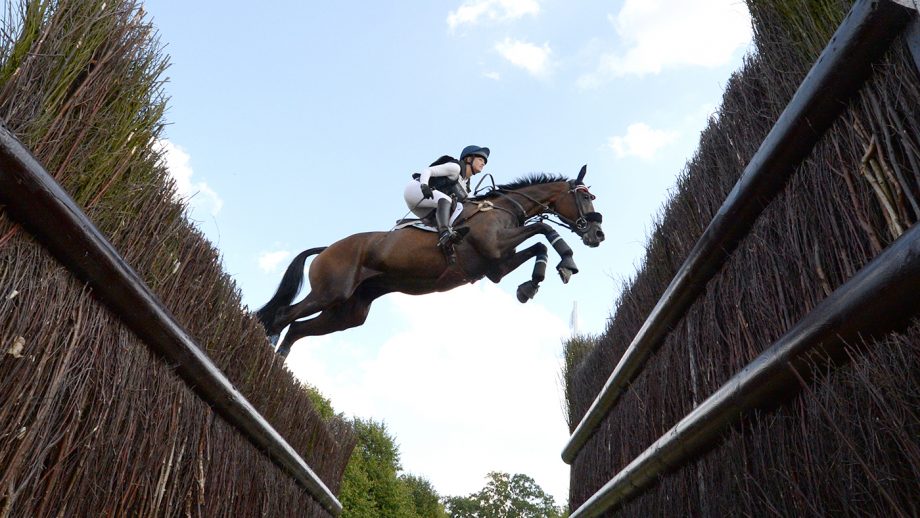Mark Phillips gives the inside story of what happened with this cancellation
THE twists, turns and unforeseen consequences of Covid-19 keep coming.
The Land Rover Kentucky five-star behind closed doors was a surreal experience. Restrictions in the UK prevented Badminton running a similar model and we’ve recently cancelled the Festival of British Eventing at Gatcombe because of the uncertainties.
Without terrestrial television, it was difficult to see how we could give our great sponsors value for money behind closed doors – they sign up for the occasion and the experience, not just to be philanthropic and support a horse trial.
DISMAY AT BURGHLEY
NOW the latest coronavirus casualty is Burghley, which had even more twists and turns. Event director Liz Inman has been working 24/7 for weeks on various models to try to make the event financially viable.
As at Gatcombe, she found that having a limited number of spectators incurred too much cost in terms of tentage, parking, security and so on to make any anticipated income worthwhile.
So she eventually came to the conclusion that the only solution was for the event to be crowdfunded by the sport, running behind closed doors. This would avoid exposing the Burghley Estate to any more liability than the cost of cancellation in May. That cancellation cost is a serious six-figure number because of rates, rents, licences and fixed annual overheads, a lot of which had already been cut by furloughing non-essential staff.
So when the powers that be at Burghley agreed before the 1–3 May Bank Holiday weekend that she could explore and start planning for funding, she was off and running. She had commitments of support from sponsors, tradestands and the Event Horse Owners Association – who said they would use some of their reserves – as well as many individuals.
I was hired as course-designer at a reduced cost to save money flying Derek di Grazia in from the US. Adrian Ditcham and I were scheduled to go to Burghley to try to cut the cross-country budget further – for example, by using sheep to cut the grass in early summer instead of mowing, using a British Eventing Agri-vator if needed instead of irrigation, borrowing machines from JCB to move fences and so on.
It was, therefore, with complete dismay that we discovered after the Bank Holiday that the Burghley Estate powers had decided to do a U-turn and cancel.
The overriding charity under which the horse trials operates is the Burghley House Preservation Trust. I don’t understand the complexities and liabilities around charitable governance, therefore it is difficult for me to understand why, when the estate had the opportunity of reducing their cancellation liability, they would not have taken advantage of it. As we start to come out of Covid restrictions, there may have been opportunities to create more profit to reduce the liabilities even further.
It is even more puzzling when you think that Lord Exeter set the event up 60 years ago for the benefit of the sport, not the estate.
This is bad news too for British Eventing (BE) as they will not get any more funding from Burghley until the estate has recouped the cancellation losses from 2021. Therefore, it would not be unreasonable to predict no significant funding from Burghley until after the 2023 event, which will create a major hole in BE’s ongoing budgeting forecasts.
A SEVEN-DAY EVENT
THERE are a lot of jealous people quick to criticise Nigel Taylor’s Aston-le-Walls, where combining the Chatsworth fixture with his usual May one resulted in a seven-day horse trials. Nobody, though, can question the demand or the quality of what he laid on, with two sections of CCI4*-S, each with over 100 starters.
I was the course-designer for the four-star and perhaps gave the course a different feel, with five or six serious questions. But Nigel had produced near-perfect footing that gave riders the opportunity to give horses confidence-boosting rounds at this stage of the season.
I was impressed with the improvement in the dressage standard, with roughly 25% under 30. There was some excellent cross-country riding, with Piggy March, Sarah Bullimore, Harry Meade, Ros Canter, Izzy Taylor and Tom McEwen all British standouts.
As Tokyo beckons, Aston-le-Walls was a boost for the UK sport after the shadow cast by Burghley’s cancellation.
You can also read this exclusive column in the 20 May issue of Horse & Hound magazine.
You might also be interested in…

‘I just took it on’: the riders who made their championship debut at an Olympic Games *H&H Plus*

Hopes are high for new British five-star to replace Burghley Horse Trials
“People might be asked to put their hands in their pockets; the message is: sit tight, and if it comes

They don’t make ’em like they used to: what the Olympics of yesteryear were like to ride at as the 365 day countdown to Paris begins

‘He gives me goosebumps in every phase’: Laura Collett and London 52 in winning ways in ‘mini Olympics’ at Aston-le-Walls *H&H Plus*

